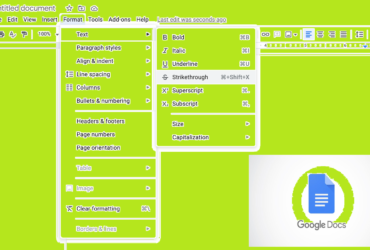A successful career is not merely a destination; it’s a journey that requires careful nurturing and continuous growth. Whether you’re just starting or looking to enhance your existing career, the path you choose and the strategies you employ can make all the difference. In today’s dynamic and competitive world, this notion holds particularly true for the field of writing. Among the various writing avenues, the role of an essay writer is both significant and sought after.
The concept of nurturing a career involves more than the traditional climb up the corporate ladder. It entails a deliberate effort to develop skills, seek opportunities for learning, and adapt to changing landscapes. In the context of a writing career, nurturing becomes even more critical. Writing is not static; it’s a craft that evolves alongside language, technology, and society. By nurturing your writing career, you not only elevate your skills but also stay relevant in an ever-evolving field. When seeking assistance with your academic assignments, it’s crucial to carefully evaluate and choose from among the many legit essay writing services available to ensure a quality outcome.
Whether you’re interested in crafting persuasive argumentative essays, engaging narrative pieces, informative expository works, or any other form, the principles of success largely remain the same. We will delve into the journey of becoming a successful essay writer, from honing your writing skills to building a distinctive online presence. By the end of this exploration, you will be equipped with insights, strategies, and inspiration to navigate the world of essay writing with confidence and competence. So, let’s embark on this journey of nurturing a career and building a fulfilling path as an essay writer.
Developing Writing Skills
Strong writing skills are the cornerstone of effective communication. Whether you’re aiming to entertain, inform, or persuade, the ability to convey your thoughts eloquently and coherently is paramount. Writing is not just about transferring words to paper; it’s about expressing ideas, emotions, and perspectives in a way that resonates with your readers. A writer’s proficiency is judged not only by their creativity but also by their command over language, grammar, and the art of storytelling.
Strategies for Improving Writing Proficiency
- Regular Writing Practice: Writing, like any skill, requires consistent practice to improve. Set aside dedicated time each day or week to write. Whether it’s journaling, short stories, or essays, the act of writing regularly hones your skills, strengthens your voice, and helps you overcome writer’s block.
- Reading Diverse Materials: Reading widely exposes you to different writing styles, genres, and perspectives. Analyze how successful authors construct sentences, develop characters, and create engaging narratives. This exposure enriches your vocabulary and enhances your ability to experiment with various writing techniques.
- Seeking Constructive Feedback: Feedback is invaluable for growth. Share your work with trusted peers, mentors, or writing groups. Constructive criticism helps you identify areas for improvement, spot blind spots, and refine your writing style. Embrace feedback with an open mind, as it’s a stepping stone towards becoming a better writer.
The Essay Genre
An essay is a literary form that allows you to express your thoughts, arguments, and ideas on a particular topic. It’s characterised by its structure, which typically includes an introduction, body paragraphs, and a conclusion. Essays provide a platform for you to showcase your analytical thinking, storytelling prowess, and persuasive abilities. Amidst the vast array of options, conducting thorough research will help you identify and engage with the best essay writing services that align with your academic needs.
Differentiating Between Various Essay Types
Descriptive, Narrative, Expository, Argumentative, etc.: Different essay types serve different purposes. Descriptive essays paint vivid pictures using sensory details, while narrative essays tell stories. Expository essays provide information and analysis, while argumentative essays present arguments and support them with evidence. Understanding the nuances of each type helps you tailor your writing approach accordingly.
Studying well-crafted essays by accomplished writers offers valuable insights. Pay attention to their introductions – how do they grab attention? Observe the flow of their arguments, transitions between paragraphs, and the techniques they use to maintain reader engagement. Analyzing exemplary essays provides a blueprint for enhancing your own writing skills.
Finding Your Niche
Discovering your niche involves identifying topics or subjects that genuinely intrigue you. When you’re passionate about your subject matter, your enthusiasm shines through in your writing. Reflect on your hobbies, experiences, and areas of expertise – these can serve as a foundation for your niche.
Research potential niches to gauge demand and competition. Explore online forums, social media, and publications to understand what topics resonate with readers. Balancing your personal interest with market demand ensures that your writing remains both fulfilling and viable.
Specializing in a niche positions you as an authority in that field. As you consistently produce high-quality content within your niche, you build a loyal readership and attract clients seeking your expertise. Additionally, delving deep into a specific area allows you to explore nuanced angles and offer unique perspectives that set your writing apart.
Research and Information Gathering
Research forms the backbone of impactful essays. It adds depth, credibility, and relevance to your writing. Thorough research enables you to present well-informed arguments, provide evidence, and address counterpoints effectively. It demonstrates your commitment to accuracy and enhances your authority as a writer.
Reliable sources lend credibility to your work. Seek information from reputable books, scholarly articles, academic databases, and trusted websites. Verify the expertise and credibility of authors before citing them. Accurate references not only enhance your essay’s quality but also facilitate fact-checking for your readers.
Organizing your research is crucial to streamline your writing process. Create a system to categorize and store information, whether it’s through digital tools or physical notebooks. Use outlines to structure your ideas around your research findings, ensuring a logical flow in your essay.
Crafting a Captivating Thesis
The thesis statement is the essay’s compass – it sets the direction and scope of your argument. It succinctly captures the main point you’re trying to convey, guiding both you and your readers throughout the essay. A well-crafted thesis statement fosters clarity and focus.
Crafting an effective thesis involves distilling your main argument into a single, concise sentence. To make it engaging, consider the “So What?” factor – why should your readers care about your thesis? Make it thought-provoking and relevant. Additionally, ensure that it’s specific enough to guide your essay’s content.
Your thesis should seamlessly integrate with your essay’s structure. Each paragraph should contribute to, support, or elaborate on the thesis. As you draft, continually assess whether your arguments align with your thesis. This cohesiveness ensures that your essay is a unified, impactful piece of writing.
Structuring the Essay
Introduction
- Hook to Grab the Reader’s Attention: Open with a captivating hook – a quote, anecdote, question, or intriguing fact. A compelling hook entices readers to continue reading.
- Providing Context and Background: Offer context related to your topic, outlining its relevance and significance. Provide enough information to orient readers without overwhelming them.
- Presenting the Thesis Statement: Introduce your thesis statement, clearly and concisely stating the main argument of your essay. The thesis sets the stage for the rest of your writing.
Body Paragraphs
- Each Paragraph Focusing on a Specific Point or Idea: Dedicate each paragraph to a single idea or argument that supports your thesis. This approach maintains clarity and prevents confusion.
- Incorporating Evidence and Examples: Back your arguments with evidence – statistics, quotes, anecdotes, or research findings. Concrete examples make your points more relatable and convincing.
- Maintaining Coherence and Logical Flow: Use transitional phrases to guide readers from one idea to the next. Logical progression enhances readability and comprehension.
Conclusion
- Summarizing Key Points: Recap the main points discussed in your essay. This helps reinforce your argument and reminds readers of your main takeaways.
- Restating the Thesis in a New Light: Reiterate your thesis in a way that reflects the insights gained from the essay’s exploration. Present it as a refined perspective.
- Offering Insights or Suggestions for Further Thought: Conclude by offering insights, posing questions, or suggesting further avenues of exploration. Leave readers with something to contemplate after finishing your essay.
These foundational elements contribute to a well-structured essay that effectively communicates your ideas. Stay tuned as we delve further into refining your writing skills and nurturing your career as an essay writer.
Pursuing Continuous Learning
Writing is a dynamic craft that evolves with time. Styles, preferences, and trends change, influenced by shifts in culture, technology, and society. As an essay writer, recognizing and adapting to these changes is essential to remain relevant and captivating to your audience. Embrace the fact that writing is not stagnant – it’s a journey of constant learning and adaptation.
Engaging in Workshops, Courses, and Reading
- Workshops: Participate in writing workshops and seminars. These interactive sessions provide insights from experienced writers and offer opportunities to receive feedback on your work.
- Courses: Enroll in writing courses that align with your interests and goals. Whether online or in-person, courses help you delve deeper into specific aspects of writing, from grammar refinement to narrative techniques.
- Reading: Reading extensively exposes you to diverse writing styles and genres. It broadens your perspective, enhances your vocabulary, and sparks inspiration. Reading not only informs your writing but also nourishes your creativity.
Embracing continuous learning involves an openness to change and improvement. Be willing to step out of your comfort zone, experiment with new styles, and take risks. As you gather knowledge and hone your skills, your writing will evolve, becoming richer and more nuanced. Embrace challenges as opportunities for growth and celebrate the progress you make along the way.
Through dedicated research, effective organization, and a captivating thesis, you lay the foundation for essays that engage, inform, and persuade. Structuring your essays with well-crafted introductions, coherent body paragraphs, and insightful conclusions ensures your ideas are conveyed with clarity and impact.
So, embrace the challenges, relish the learning experiences, and celebrate the growth. As you nurture your writing career with passion and dedication, remember that each essay you write is a step forward in your journey, contributing to your personal development and leaving a mark on the world of words.











Leave a Reply